 Music
Music  Music
Music  Weird Stuff
Weird Stuff 10 Unbelievably Bizarre Blunders
 History
History 10 Doomsday Scenes from the Year Without a Summer
 Technology
Technology 10 Surprising Truths About the Power Grid You Were Never Told
 Food
Food 10 Most Outrageous Restaurant Food Challenges
 Facts
Facts 10 Interesting and Bizarre Facts About Vending Machines
 Technology
Technology 10 Ancient “Smart” Materials Scientists Still Can’t Reproduce
 Gaming
Gaming 10 Games Milked for All Their Worth
 Our World
Our World 10 Things That Will Make You Rethink Everything Normal
 Animals
Animals 10 Times the Christian Church Took on the Animal Kingdom
 Music
Music 10 Bands That Originally Had Terrible Names
 Weird Stuff
Weird Stuff 10 Unbelievably Bizarre Blunders
 History
History 10 Doomsday Scenes from the Year Without a Summer
Who's Behind Listverse?

Jamie Frater
Head Editor
Jamie founded Listverse due to an insatiable desire to share fascinating, obscure, and bizarre facts. He has been a guest speaker on numerous national radio and television stations and is a five time published author.
More About Us Technology
Technology 10 Surprising Truths About the Power Grid You Were Never Told
 Food
Food 10 Most Outrageous Restaurant Food Challenges
 Facts
Facts 10 Interesting and Bizarre Facts About Vending Machines
 Technology
Technology 10 Ancient “Smart” Materials Scientists Still Can’t Reproduce
 Gaming
Gaming 10 Games Milked for All Their Worth
 Our World
Our World 10 Things That Will Make You Rethink Everything Normal
 Animals
Animals 10 Times the Christian Church Took on the Animal Kingdom
10 Signs The British Political System Is Totally Doomed
On May 7 this year, the British public headed to the polls to vote in a knife-edge election. Although many expected it to be a draw, the public ultimately handed the crown to the Conservative party (also known as the Tories). It was a clear win, and one the markets took to be a vote for stability.
But that’s only half the story. Even as the nation rallied round the Tories, the election threw up some very awkward questions about British politics. These questions suggested that the UK political system is outdated at best and downright messed up at worst.
10The Voting System Is Rigged Toward The Two Main Parties
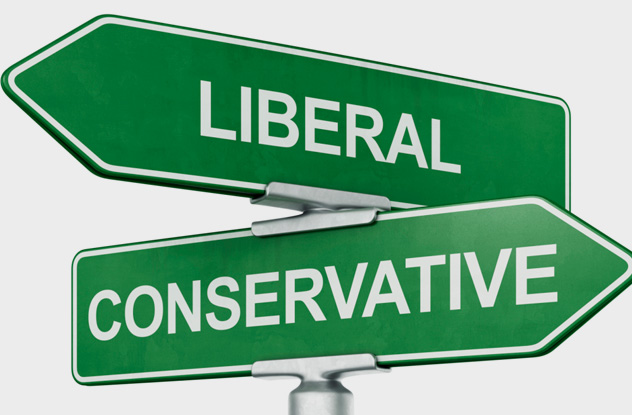
Under the First Past the Post system (FPTP), British politicians have to win the most votes in their local constituency to enter the House of Commons. Once a party has more than 326 seats (of 650 total) in the House, it elects the Prime Minister. That sounds simple enough, until you realize it only ever returns the Tories or Labour to power.
Unlike the US, the UK is in theory a multi-party democracy. In reality, FPTP ensures no upstart third party can ever break its way in. The year 1983 saw the Labour offshoot SDP forge an alliance with the Liberal Party in an attempt to become the second-biggest force in British politics. The Alliance pulled down 25.4 percent of the vote, compared to Labour’s 27.6 percent. It should’ve opened an era of genuine three-party politics. Instead, the FPTP system returned the Alliance a mere 23 seats compared to Labour’s 209.
In 2010, a near-identical scenario played out. With support for the Liberal Democrats soaring to record levels, pundits thought they might finally dethrone Labour as the official opposition. Instead, they were returned 200 fewer seats than Labour; despite receiving nearly one-quarter of all votes. Although the party then joined the Conservatives in a coalition government, they were completely wiped out five years later in the 2015 election.
The last time a third party rose to long-term prominence in British politics was back in 1924, when Labour finally replaced the Liberal Party as the opposition. Since then, the two main parties have kept a stranglehold on the establishment, effectively creating a two-party system where one shouldn’t exist.
9Alternative Voices Get Ignored
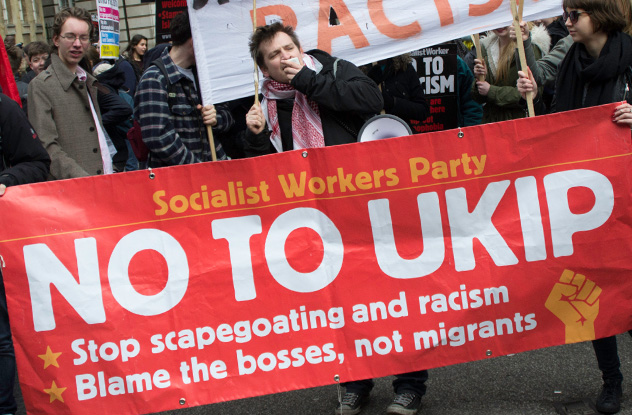
The 2015 election saw a new player enter mainstream politics: UKIP. The British equivalent of the Tea Party, UKIP was never going to replace Labour or the Tories. However, they consistently polled around 15 percent, making them sizable minority. Know how many seats this sizable minority returned on election day? One.
FPTP rigged the game so hard against alternative voices that UKIP ended up with 100 times as many votes per MP than the Conservatives. This also affected the popular left-wing Green Party, who similarly received just a single MP for their troubles. Taken together, the Greens and UKIP pulled down around five million votes in return for two seats out of 650. The Labour party, meanwhile, received 231 seats for less than 10 million votes.
The result is a system where alternative voices can be completely ignored. Even though UKIP and the Greens together represent a sizable chunk of the British public, the two main parties never have to pay any attention at all to them. They can ignore their wishes completely, knowing it won’t affect their electoral prospects. No wonder people are so disengaged that if “not voting” were a party, it would be the biggest party by a large margin.
8Safe Seats Stifle Even Mainstream Voices
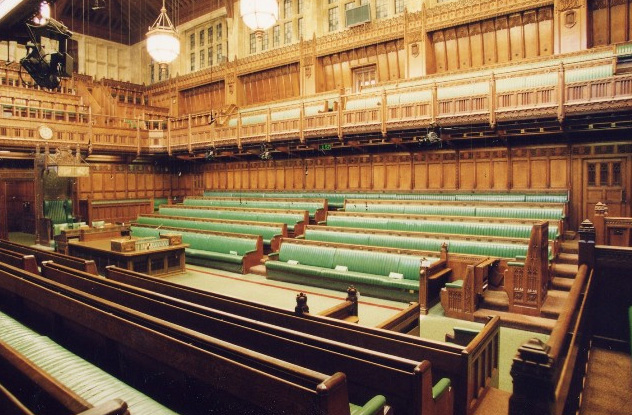
Even if British voters are planning to vote for one of the two main parties, there’s still a good chance their voices won’t be heard. Of the UK’s 650 constituencies, over half are considered “safe seats” where no one but the incumbent stands any chance of winning.
This means you could be a lifelong Conservative voter but will never have your voice heard because you’re stuck in a Labour safe seat. Just before the 2010 general election, The Independent estimated that only one-sixth of all British voters had any realistic chance of influencing the outcome. As a result, the lucky few living in those marginal constituencies get millions of pounds spent on them during the campaigns, while the rest of the UK makes do with mere pennies.
MPs in safe seats have no incentive to work for all their constituents or even do a particularly good job. In 2009, it was revealed that safe seat candidates were more likely to have misappropriated funds than their less-secure counterparts.
This isn’t a uniquely British phenomenon. The US has its own problem with safe seats, as do other countries. But the UK’s example is particularly bad. Most British safe seats haven’t changed hands since the 1960s, and some haven’t shifted since Queen Victoria was on the throne.
7The Unelected Upper Class Still Write The Laws
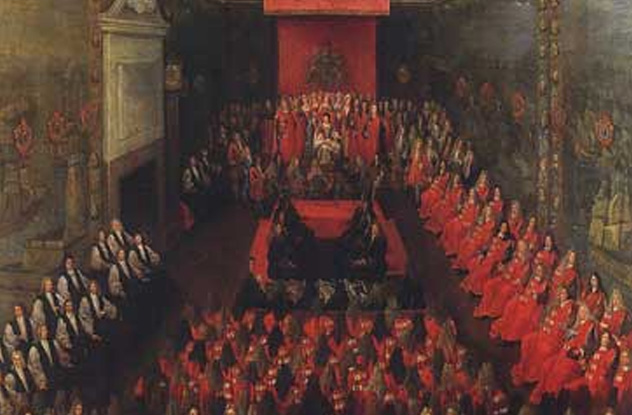
One of the biggest quirks of the UK government is the House of Lords. An 825-person strong “second chamber,” it’s responsible for reviewing legislation and can derail new laws or demand revisions. It’s also completely unelected, with the majority of its members being nominated by the House of Lords Appointment Commission. A sizable minority are there for no other reason than hereditary privilege or close ties with the Church of England.
Known as the Lords Temporal and Lords Spiritual, the two groups collectively number around 110. That’s a sizable block of people writing British law who reached their position purely by being upper-class. The rest of the Lords are little better. In 2014, former Liberal Democrat party treasurer Lord Razzall revealed that wealthy businessmen used to approach him offering million-pound bribes for a seat in the House of Lords. While he turned them down (and broke the law by not reporting the offer), others have been less scrupulous. In 2006, it was revealed that several Lords were simply there because they’d given money to the Labour party.
6Different Regions Have Conflicting Powers
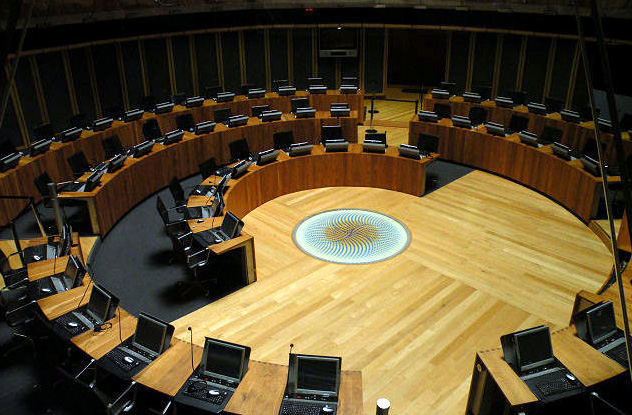
Since the 1990s, the UK has tried to shift power away from Westminster. Scotland, Northern Ireland, and Wales all have their own assemblies, with only local politicians being allowed to vote on laws affecting them. Strangely, the reverse isn’t true. MPs from each of these regions are allowed to vote on laws that only affect England.
This has led to some awkward moments. When England raised university tuition fees in the mid-2000s, the legislation only made it past the Commons thanks to the support of Scottish MPs. The Scottish assembly then separately voted to keep higher education free in Scotland.
Although the pro–fee increase Scottish MPs had no control over Edinburgh’s decision (that fell to local MSPs), it still left a nasty taste in the mouth. English voters felt the Scots had made a decision affecting their children’s futures without bearing any of the load themselves. As a further kick in the teeth, Scotland’s universities then offered free tuition to citizens of all EU countries—with the sole exception of England.
Thanks to moments like this, resentment is now riding high south of the border. The newly elected government is proposing “English votes for English laws” (EVEL), but even that has problems. Historically, the southwest and northeast have been politically different from the rest of England, and voters in those areas are now upset EVEL would leave them with even less representation. The solution seems to be a form of federalism, but the political will simply isn’t there.
5The Third-Largest Party Wants To Dismantle The UK
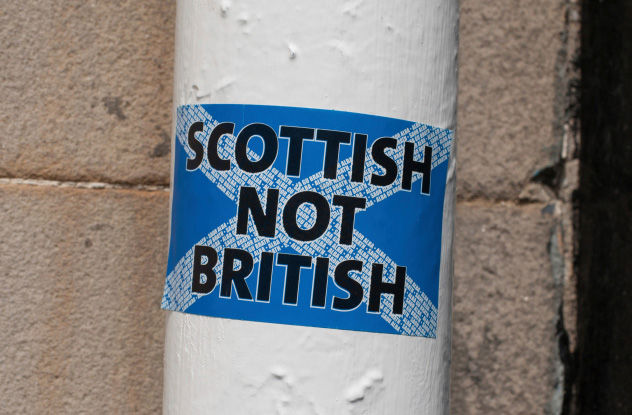
Speaking of Scotland, the 2015 election saw the Scottish National Party (SNP) sweep the boards, claiming 56 of the 59 seats available to them. They became the largest party in Scotland, and the third-largest in Westminster. This is something of a problem, as the SNP are committed to the breakup of the Union.
Only seven months before the 2015 election, Scotland held a referendum on staying in the UK. Although the nationalists lost, David Cameron’s handling of the aftermath was a textbook study in bungling. Despite being a pro-Unionist, Cameron deployed increasingly anti-Scottish rhetoric in the run-up to his election campaign, fueling resentment between the conservative south and left-wing Edinburgh. At the same time, Labour was seen to betray Scottish voters over promises made in the referendum, leading many to turn to the recently defeated SNP.
Things are now in a deadlock, with the SNP capable of calling another referendum at any time. With their support riding so high, they’d almost certainly win it. Unless the Westminster parties can start seeing eye to eye with Scotland in the very near future, the UK could break up.
4The Rise Of The Political Class
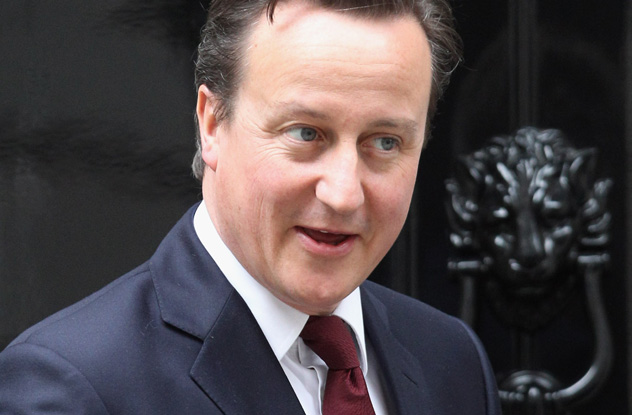
Back in the 1960s, the Labour party boasted that nearly 40 percent of its members came from a staunchly blue-collar background. As a whole, one-fifth of the UK’s politicians had started life in low-paid manual occupations. In 2010, a mere 5 percent of MPs could be considered working class.
It’s not just blue-collar families who are underrepresented in the House of Commons. Non-white faces make up a grand total of 6 percent of all elected MPs in 2015. That low figure ranks as a record high. Even more worrying is the trend for all politicians to go to the same schools and universities. Nearly one-third of all MPs went to Oxford or Cambridge, with that number rising to 50 percent for ministers. In the 2015 election, both David Cameron and his opponent Ed Milliband had even studied the same course at the same university.
Add wealth into the equation and things get even crazier. Over two-thirds of cabinet ministers in the last UK government were millionaires, which doesn’t chime with their austerity-pushing claim that “we’re all in this together.”
3The UK Media Is More Partisan Than Fox
If you live in the US, the words “partisan” and “news” put together probably conjure one of two images. If you’re liberal, you’ll think of the Fox News logo, and if you’re conservative, MSNBC springs immediately to mind. Yet if you live in the UK, the media is more partisan than either of them.
This opinion comes from Obama’s former campaign guru David Axelrod, who also advised Labour leader Ed Milliband in the UK election. In his opinion, the UK media may have better standards generally, but its papers are starkly partisan. The Telegraph, for example, mass-emailed its website members and told them to vote Tory. It also spent the run-up to the election posting stories direct from Conservative headquarters, without fact-checking them, including one that wrongly named charities and businesses that supposedly supported Cameron. The Sun, on the other hand, ran so many attacks in the campaign that 95 percent of its columns were deemed to be anti-Labour.
Keep digging and things get even muckier. The Daily Mail ran hit jobs on Milliband’s dead Holocaust refugee father and his wife’s appearance. Meanwhile, The Sun tried to anonymously offer readers £100 for pro-Tory stories and The Mirror willfully distorted a speech by former Conservative PM John Major to make it sound like he was attacking Cameron. By Election Day, the Washington Post claimed the UK media was in all-out political warfare. As American pollster Frank Luntz aptly summed it up, “The British press is like their weather—awful.”
2Meddling By The Palace
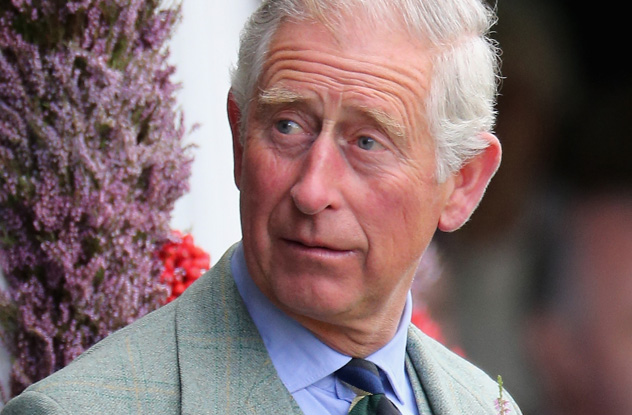
The British Royal Family is one of the most popular monarchies on the planet. Fewer than 20 percent of the public want to ditch the Queen, and the birth of a royal baby is treated like the Second Coming. Despite all this, the Royal Family is purely symbolic, wielding no actual power. At least, that’s meant to be the case. Ten years ago, it came to light that Prince Charles was abusing his position to influence policy by writing letters to various government departments.
The case has become known as the Black Spider Memos, thanks to the Prince’s scraggly handwriting. Although the memos’ existence was first discovered in 2005, it was only in 2015 that a court finally declared they could be released to journalists, after a long legal battle by the government. At time of writing, the memos have only just been released. Already, there’s evidence surfacing that Prince Charles lobbied Tony Blair over military spending, and that the prime minister was so kowtowed to him he even asked Charles what to do regarding the sale of herbal medicines. From what we’ve read so far, it’s starting to look like serious questions will need to be asked about the Prince’s role in politics.
1The Westminster Abuse Ring

In December 2014, Labour MP John Mann handed a dossier to the London police. Inside were the names of 22 Westminster politicians believed to have been part of a pedophile ring in the 1980s. The documents alleged these MPs abducted young boys from care homes, raped them on government property, and then murdered them, and the UK establishment covered it up. Six of these MPs were still serving in government.
This isn’t a far-fetched conspiracy theory. Scotland Yard believes members of the British establishment abused and murdered children and is currently investigating. The government itself has launched an inquiry into the allegations, including reports that an apartment block used exclusively by MPs was the site of orgies. There are reports that high-ranking members of government destroyed evidence, blocked the police from investigating and even assaulted the children of their colleagues. The Independent Police Complaints Commission has opened 14 lines of inquiry into allegations Scotland Yard helped cover up the abuse.
It sounds crazy, but there’s a lot of evidence something is rotten at the heart of UK politics. Already, former Liberal MP Cyril Smith (who died in 2010) has been found to have been a pedophile, and there’s evidence he wasn’t prosecuted while alive because of who he might name in court. If the inquiry finds evidence to implicate those Smith would have named, the UK government would be proved to have been complicit in some truly dark deeds.








